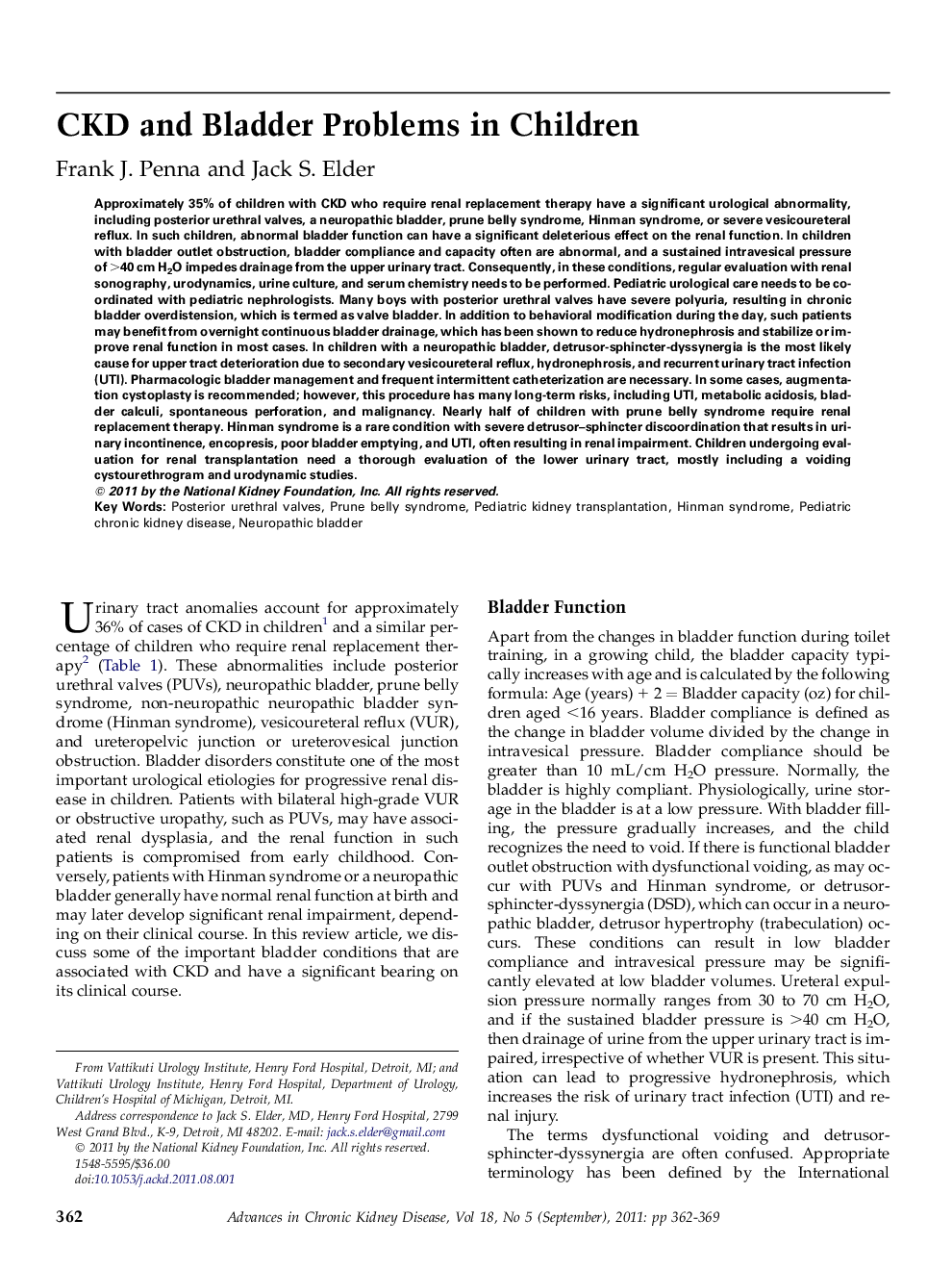| Article ID | Journal | Published Year | Pages | File Type |
|---|---|---|---|---|
| 3846964 | Advances in Chronic Kidney Disease | 2011 | 8 Pages |
Abstract
Approximately 35% of children with CKD who require renal replacement therapy have a significant urological abnormality, including posterior urethral valves, a neuropathic bladder, prune belly syndrome, Hinman syndrome, or severe vesicoureteral reflux. In such children, abnormal bladder function can have a significant deleterious effect on the renal function. In children with bladder outlet obstruction, bladder compliance and capacity often are abnormal, and a sustained intravesical pressure of >40 cm H2O impedes drainage from the upper urinary tract. Consequently, in these conditions, regular evaluation with renal sonography, urodynamics, urine culture, and serum chemistry needs to be performed. Pediatric urological care needs to be coordinated with pediatric nephrologists. Many boys with posterior urethral valves have severe polyuria, resulting in chronic bladder overdistension, which is termed as valve bladder. In addition to behavioral modification during the day, such patients may benefit from overnight continuous bladder drainage, which has been shown to reduce hydronephrosis and stabilize or improve renal function in most cases. In children with a neuropathic bladder, detrusor-sphincter-dyssynergia is the most likely cause for upper tract deterioration due to secondary vesicoureteral reflux, hydronephrosis, and recurrent urinary tract infection (UTI). Pharmacologic bladder management and frequent intermittent catheterization are necessary. In some cases, augmentation cystoplasty is recommended; however, this procedure has many long-term risks, including UTI, metabolic acidosis, bladder calculi, spontaneous perforation, and malignancy. Nearly half of children with prune belly syndrome require renal replacement therapy. Hinman syndrome is a rare condition with severe detrusor-sphincter discoordination that results in urinary incontinence, encopresis, poor bladder emptying, and UTI, often resulting in renal impairment. Children undergoing evaluation for renal transplantation need a thorough evaluation of the lower urinary tract, mostly including a voiding cystourethrogram and urodynamic studies.
Keywords
Related Topics
Health Sciences
Medicine and Dentistry
Nephrology
Authors
Frank J. Penna, Jack S. Elder,
